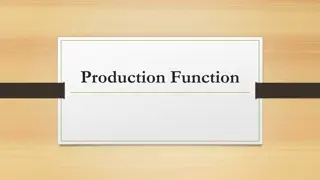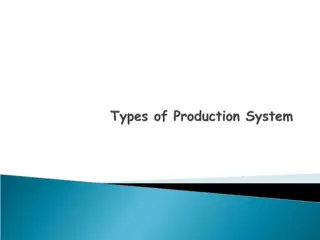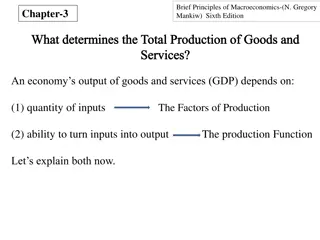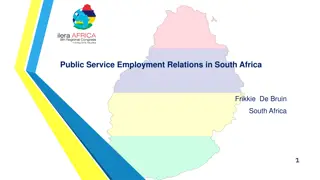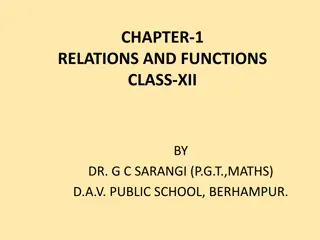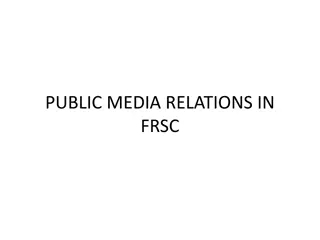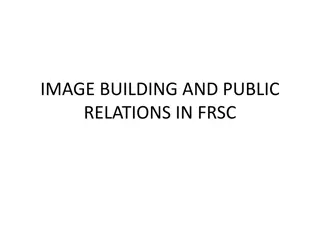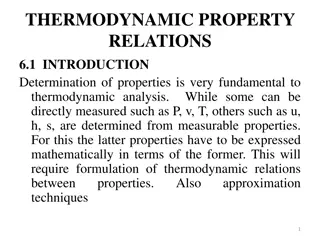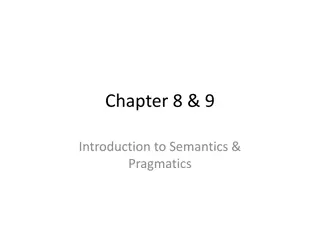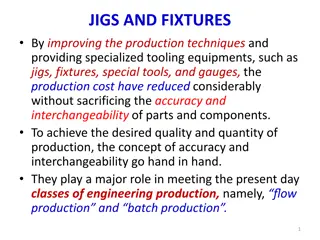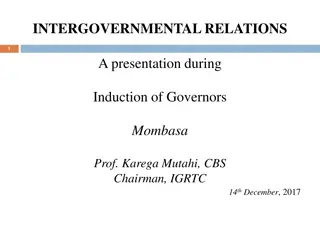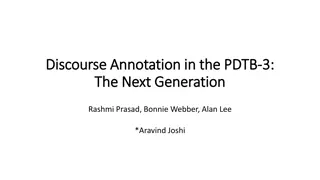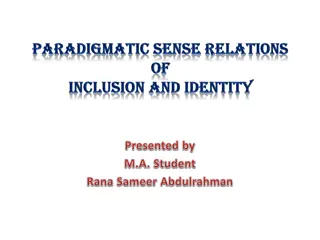Understanding Relations of Production in Society
People's need for survival drives them to engage in material production, forming the foundation of human existence. According to thinkers like Karl Marx, the interplay between economic production and social relationships shapes society's structure. The forces of production encompass technological advancements and labor, while relations of production involve the social interactions within the production process. As productive forces evolve, so do social relations, influencing the direction of progress in society.
Download Presentation

Please find below an Image/Link to download the presentation.
The content on the website is provided AS IS for your information and personal use only. It may not be sold, licensed, or shared on other websites without obtaining consent from the author. Download presentation by click this link. If you encounter any issues during the download, it is possible that the publisher has removed the file from their server.
E N D
Presentation Transcript
People need food, clothing, shelter and other necessities of life in order to survive. They cannot get all these things ready-made from nature. To survive, they produce material goods from objects found in nature. Material production has always been and still is the basis of human existence. For Karl Marx, the history of human societies is the story of how people relate to one another in their efforts to make a living. According to Marx, economic production or production of material life is the starting point from which society as an inter-related whole is structured. For Marx, a certain type of production creates a certain type of distribution, exchange and consumption. On the basis of all these economic categories are formed certain types of relations of production.
FORCES OF PRODUCTION Forces of production express the degree to which human beings control nature The more advanced the productive forces are, greater is their control over the nature and vice versa. You can say the forces of production are the ways in which material goods are produced. They include the technological know-how, the types of equipment in use and goods being produced for example, tools, machinery, labour and the levels of technology are all considered to be the forces of production. The forces of production, according to Marx, include means of production and labour power. The development of machinery, changes in the labour process, the opening up of new sources of energy and the education of the workers are included in the forces of production. In this sense science and the related skills can be seen as part of the productive forces. Productive forces transform nature into use values and exchange values.
Productive forces have an intrinsic tendency to develop, as human beings knowledge and mastery over nature increase. As these forces develop, successive social relations of production develop. RELATIONS OF PRODUCTION Relations of production are a concept frequently used by Karl Marx and Friedrich Engels in their theory of historical materialism and in Das Kapital. According to Marx the forces of production are not the only factors in material production. People are able to produce jointly by organising in a society. In this sense, labour is and always has been social in character.
You can easily say that the relations of production are the social relations found among the people involved in the process of production. Relations of production are the social relations of production. As such they include both the relations between the direct producers or workers and their bosses or those who control their labour, and the relations between the direct producers themselves. Relation of production is not merely the ownership of means of production. The boss s relation to the worker is one of domination and the worker s relation with co-workers is one of cooperation. The relations of production are relations between people and people whereas means of production are relations between people and things. The relations of production can influence the motion and direction of the development of the productive forces.
Forces and relations of production, in any mode of production underline not just the economic progress, but a movement of the whole of society from one stage to another. Let us in the next section discuss Marx s concept of mode of production.


